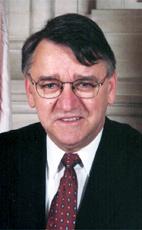Madam Speaker, I know that the member spoke to the minister. I can assure him that he takes his concerns very seriously.
I would like to try to explain here how the Pest Control Products Act applies to products that scare away birds.
All products claimed to be usable in the fight against harmful organisms are subject to the Pest Control Products Act. The expression fight against means among other things that harmful organisms are kept away, are attracted, prevented from infesting or eliminated. These organisms may be weeds, insects, molds, rodents and even bacteria in swimming pools.
The Pest Management Regulatory Agency of Health Canada certifies a whole range of products for such purposes.
The device the member is referring to is designed to scare birds away in order, among other reasons, to prevent aircraft from crashing. We should all understand that it is important to ensure that devices claiming to improve human protection are tested as to their effectiveness. In other words, whether they do what they should. Certified products must also bear a label carrying instructions for safe and effective use.
Under the Pest Control Products Act, the annual cost to continue certification of pest control products represents 3% of annual sales, with the maximum cost payable of $2,690 and the minimum of $75. These costs enable the Pest Management Regulatory Agency to run ongoing programs to protect Canadians, such as the monitoring of compliance, renewal of certification, reassessment of old pesticides and special examinations.

